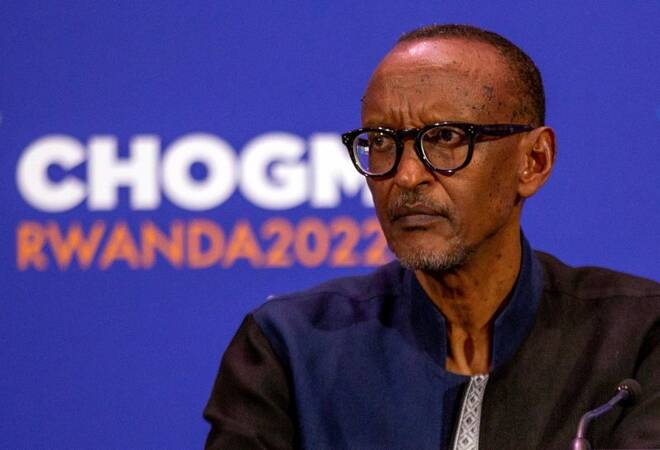Advertisement
Advertisement
Congo and Rwanda to meet for talks amid tensions over rebels
By:
NAIROBI (Reuters) - Rwandan President Paul Kagame said on Monday his country has no problem being excluded from a regional military force to be deployed to end decades of bloodshed caused by militant activity in eastern Democratic Republic of Congo.
By Stanis Bujakera and Clement Uwiringiyimana
KINSHASA/KIGALI (Reuters) -Democratic Republic of Congo’s President Felix Tshisekedi will meet his Rwandan counterpart Paul Kagame for talks in Angola this week, officials said on Monday.
There were no details on what they would discuss, but the neighbours have been at diplomatic loggerheads since a surge of attacks in eastern Congo by the M23 rebel group – which Kinshasa accuses Kigali of backing.
Rwanda denies supporting the rebels and has, in turn, accused Congo of fighting alongside insurgents – a face-off that has raised fears of fresh conflict in the region.
The meeting is likely to take place on Tuesday or Wednesday in Angola’s capital Luanda, according to the officials – two of them from Congo and one Rwanda – who did not wish to be named.
Earlier on Monday, Kagame said he did not mind Rwanda being excluded from a regional military force set up in April to fight rebels in east Congo, removing a potential stumbling block to the initiative.
Congo had welcomed the plan but said it would not accept the involvement of Rwanda.
“I have no problem with that. We are not begging anyone that we participate in the force,” Kagame told Rwanda’s state broadcaster in a wide-ranging interview.
“If anybody’s coming from anywhere, excluding Rwanda, but will provide the solution that we’re all looking for, why would I have a problem,” Kagame said.
At the end of March, the M23 started waging its most sustained offensive in Congo’s eastern borderlands since capturing vast swathes of territory in 2012-2013.
Rwanda accuses Congo’s army of firing into Rwandan territory and fighting alongside the FDLR – an armed group run by ethnic Hutus who fled Rwanda after taking part in the 1994 genocide.
Recent attempts to stop the violence militarily have proven unsuccessful, and in some cases backfired, security analysts and human rights groups say.
Despite billions of dollars spent on one of the United Nations’ largest peacekeeping forces, more than 120 rebel groups continue to operate across large swathes of east Congo almost two decades after the official end of the central African country’s civil wars.
(Reporting by Stanis Bujakera in Kinshasa and Clement Uwiringiyimana in Kigali Writing by Estelle Shirbon and Hereward HollandEditing by James Macharia Chege and Andrew Heavens)
About the Author
Reuterscontributor
Reuters, the news and media division of Thomson Reuters, is the world’s largest international multimedia news provider reaching more than one billion people every day. Reuters provides trusted business, financial, national, and international news to professionals via Thomson Reuters desktops, the world's media organizations, and directly to consumers at Reuters.com and via Reuters TV. Learn more about Thomson Reuters products:
Did you find this article useful?
Latest news and analysis
Advertisement
